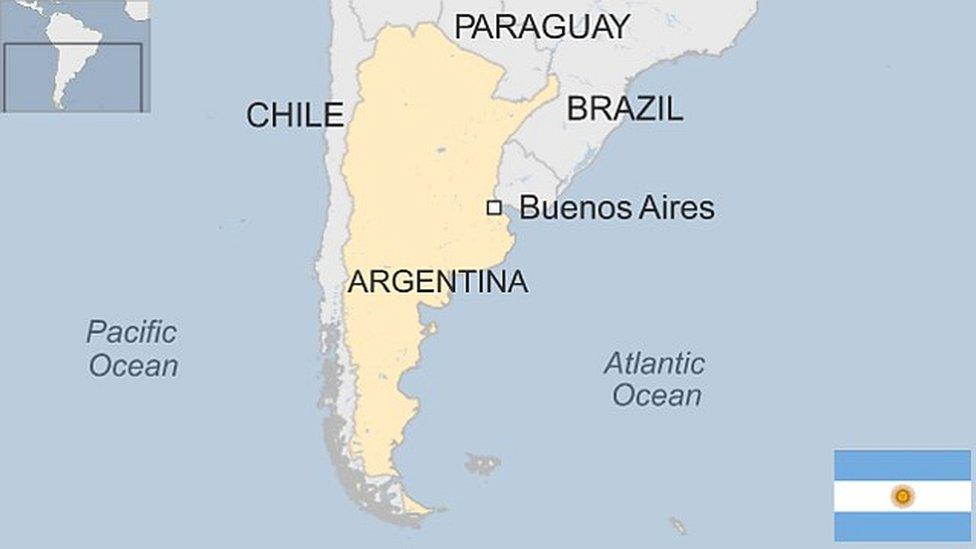Argentines strike against spending cuts under Javier Milei
- Published
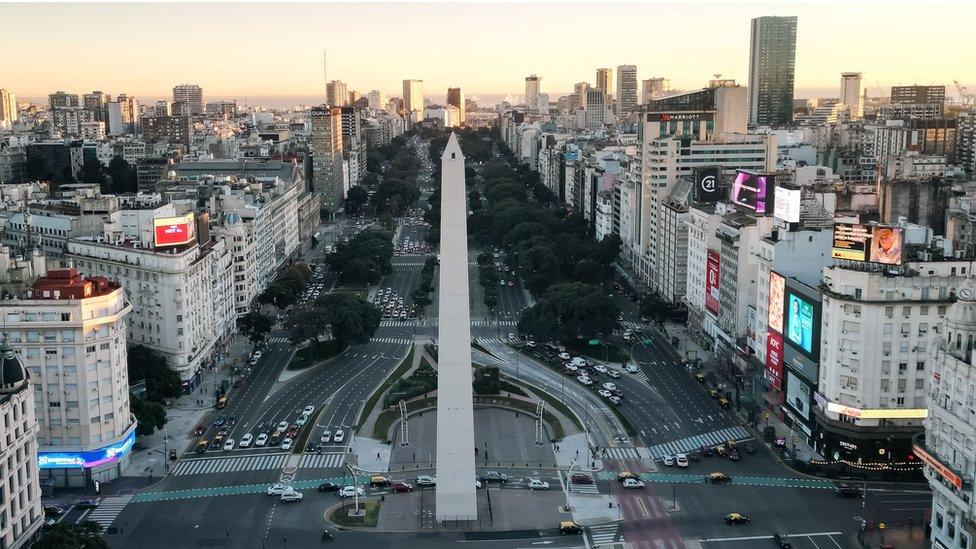
A general view showing the 9 de Julio Avenue and the obelisk during the general strike in Buenos Aires
A general strike against public spending cuts has affected most of Argentina, where schools, banks and many shops remained closed.
Train and metro services were suspended on Thursday, with a limited bus service running.
One of the main union leaders, Hector Daher, said the 24-hour strike was a wake-up call to President Javier Milei.
Mr Daher urged him to review some of the cuts to subsidies and social programmes.
Mr Milei, a right-wing economist who campaigned with a chainsaw to represent his desire to slash public spending, has begun implementing comprehensive austerity measures since coming into power in December.
He says his measures are necessary to reduce Argentina's public deficit and control the country's inflation rate, which is the highest in the world at nearly 300% a year.
The president criticised the strike, saying his government had already made many concessions to the unions.
His government has trumpeted some successes since he came to power, with officials pointing to falling inflation in recent months. But critics say it has come at a cost, with a slump in economic activity.
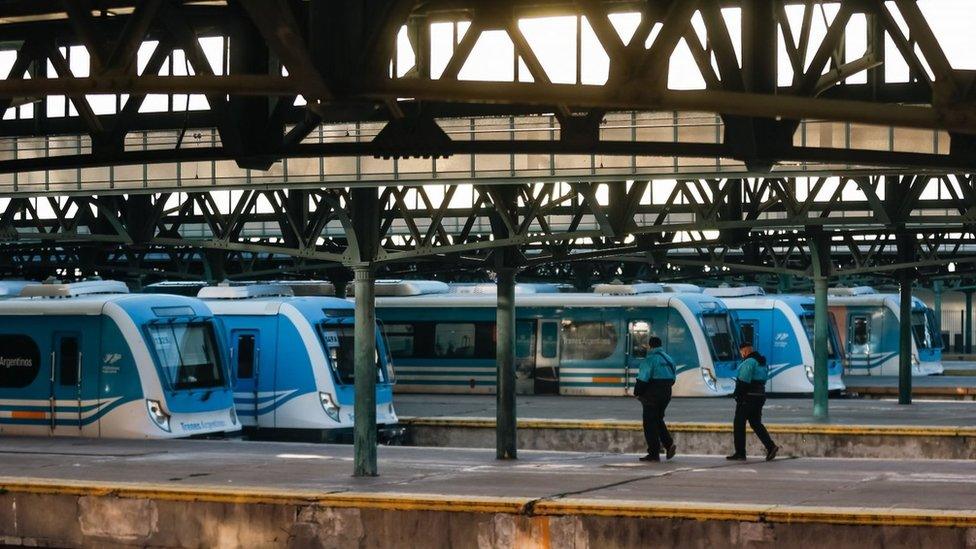
Train services were halted in the capital Buenos Aires - as seen in this photo - and across Argentina on Thursday
A government spokesman described the strike as "purely political", and said it "damages and complicates the lives of many people".
The unions, however, have accused Mr Milei's cuts of doing the same.
"Far from being sustainable, [the cuts are] taking sectors of citizens to extremes that they will hardly be able to recover from if this continues," Mr Daher said, according to the Diario Democracia newspaper.
Other union leaders vowed to continue the collective action if the Argentine government refused to ease some of his measures.
Viggo Mortensen, the Lord of the Rings actor who was raised in Argentina, told RTVE that he felt Mr Milei was a "clown" whose administration had been "a total disaster" for Argentines.
But others expressed anger towards the strikes, as while they predominantly affected public services, many businesses had remained open.
"This hurts us because we sell less," Cacho, a bingo vendor, told El Tribuno in Salta, northwest Argentina. "We have to work. I walked 20 blocks [to] come downtown."
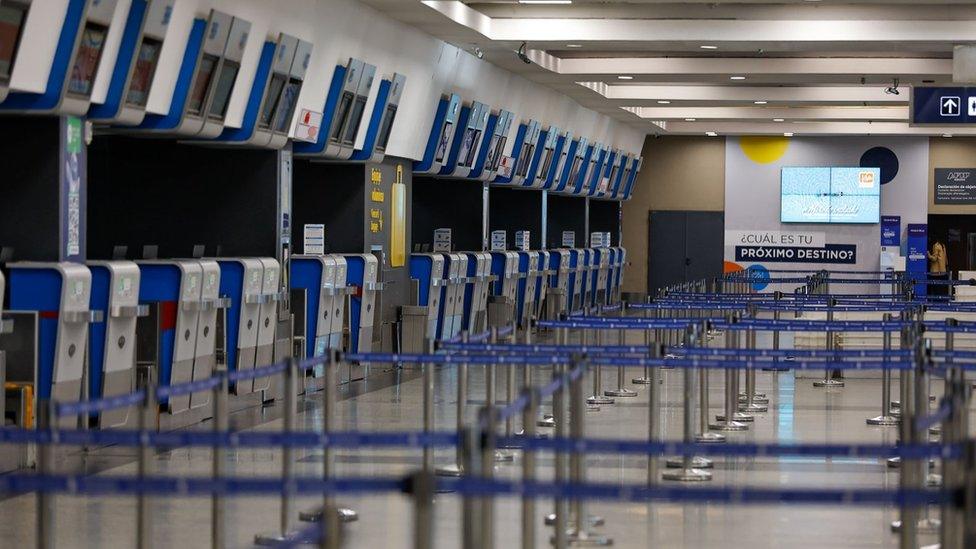
Airports across the vast country were empty...
"I barely got a passenger," a taxi driver in Buenos Aires told a TN reporter. "If I don't work one day, I don't eat."
Despite the dissent towards his measures, opinion polls suggest that Mr Milei remains popular with Argentinians. Recent surveys showed his approval rating hovering around 45-50%, just short of the 56% vote share he won in the election.
In a recent interview with the BBC, he denied that ordinary citizens were paying the price for his cuts, arguing that "the most regressive tax that most afflicts people is inflation".
Mr Milei expressed pride in the fact he had lowered government spending below tax revenue for the first time since 2008, but said that "there is no magic, real life needs time".
"What would have been the alternative? To continue to print money like the previous administration that generates inflation and ends up affecting the most vulnerable?"
His left-wing predecessor, Cristina Fernández de Kirchner, described the cuts as a "useless sacrifice of the people" in the wake of the strikes.
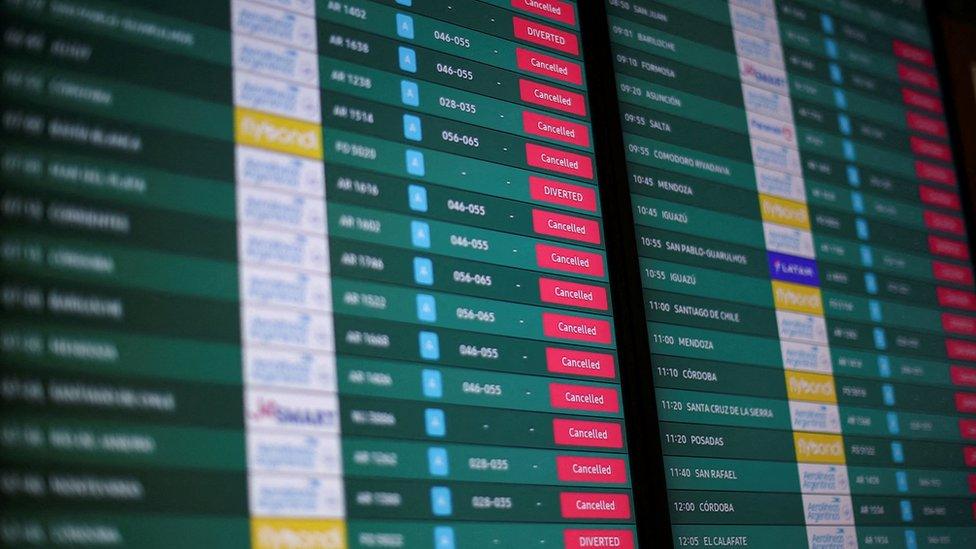
...as many flights were either cancelled or diverted
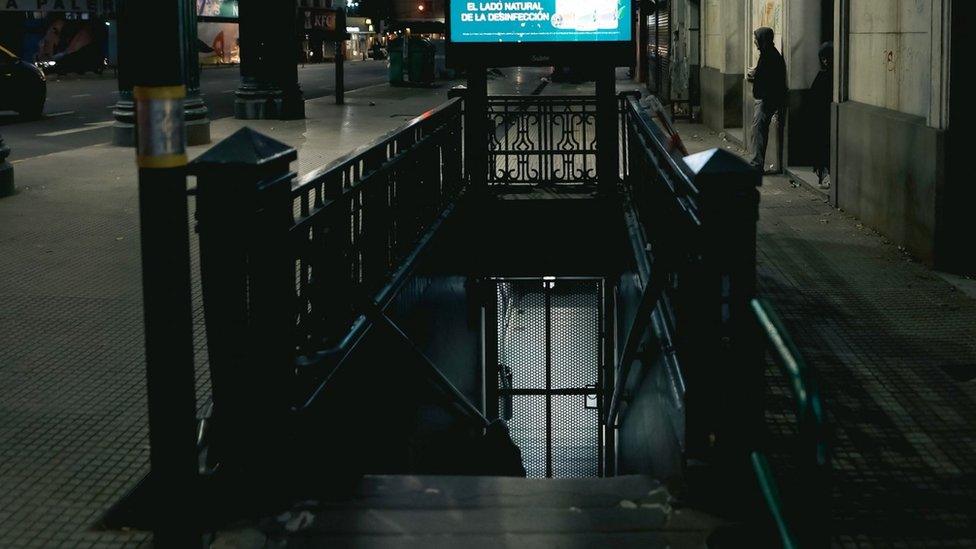
In Buenos Aires, the Subte underground - used by more than one million people every day - was also shut
Related topics
- Published24 April 2024
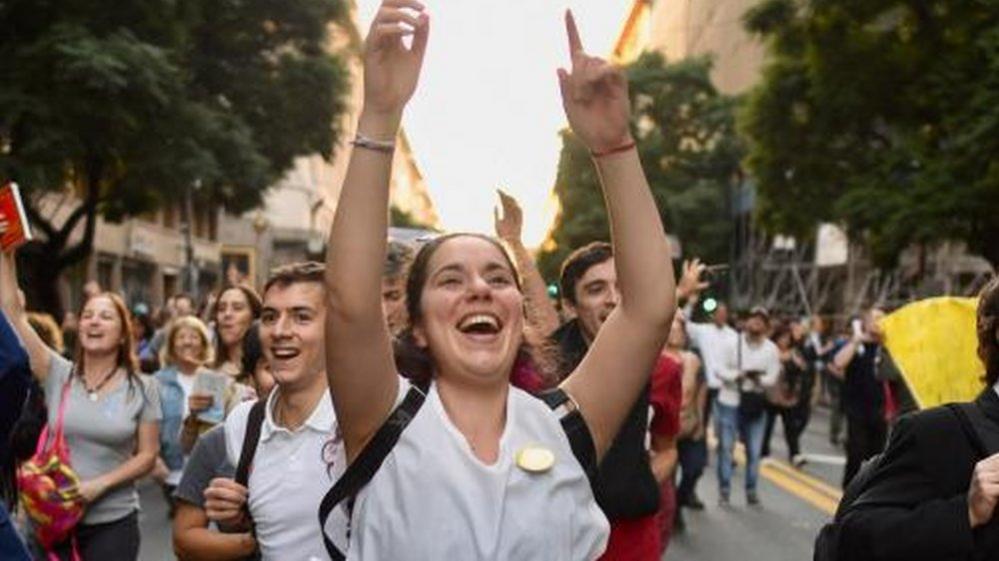
- Published10 April 2024
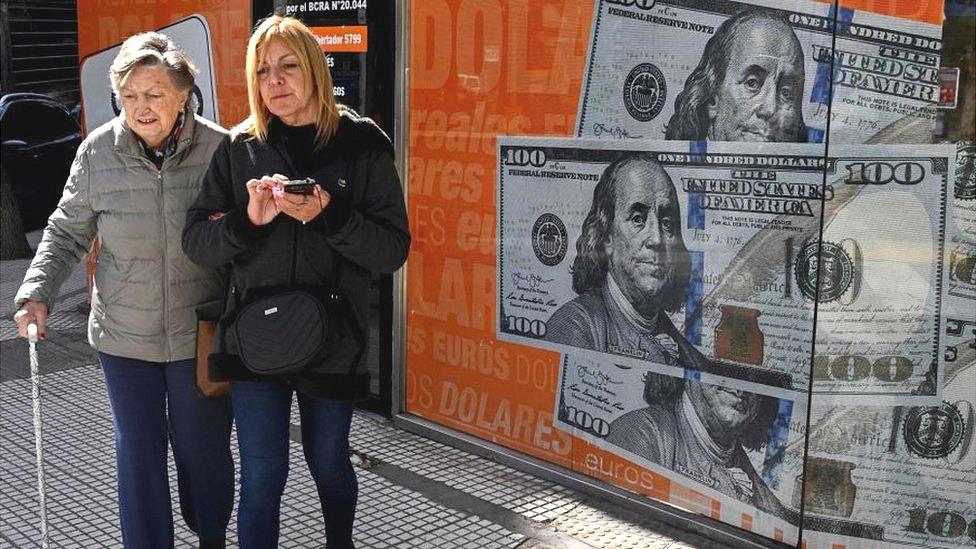
- Published4 January 2024
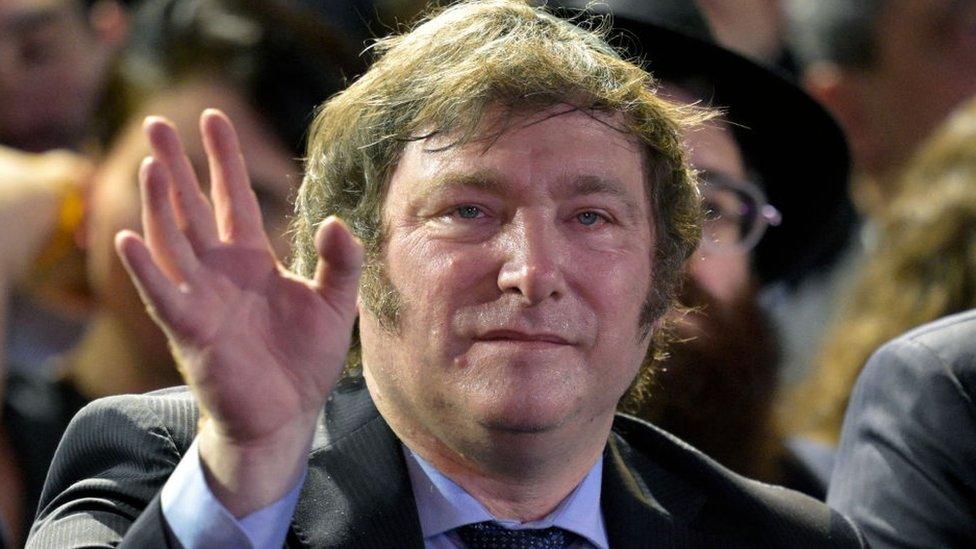
- Published8 January 2024
